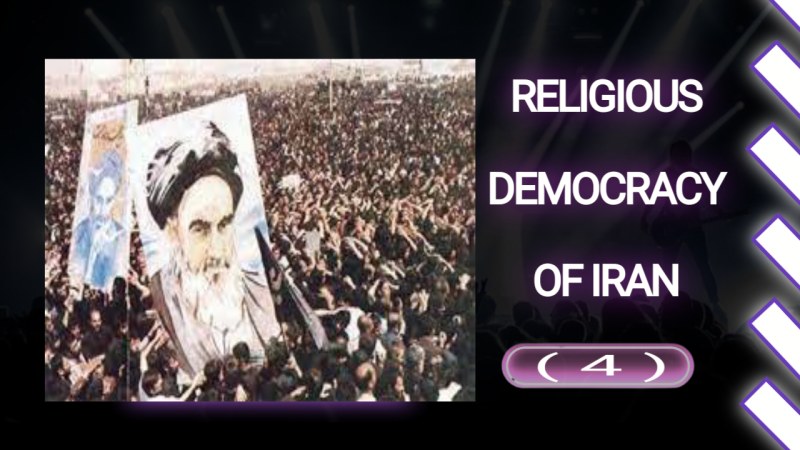- Religious democracy and its most important component, that is, valuing people's choice and consent in determining their political destiny in the form of the implementation of the Velayat al-Faqih system, has made its way into the political literature of the world.

Religious democracy of Iran
Religious democracy:
Click to Previous Part
However, during the Hajj season in the 10th year of Hijrah, verse 67 of Surah Al-Ma'idah was revealed to the Holy Prophet, may God bless him and grant him peace, in which God Almighty said: “O Prophet! What has been revealed to you from your Lord, convey (to the people) completely. And if you don't do that, you haven't fulfilled his mission. God protects you from (possible dangers of) people”.[1]
In this way, the announcement of the guardianship and succession of Imam Ali as the completion of the religion of Islam became obligatory on the Prophet (PBUH). According to the consensus of Shia commentators and famous Sunni commentators, the above-mentioned honorable verse was revealed in the issue of the guardianship and succession of Ali (peace be upon him) in the Ghadir Khum area.[2]
The undeniable historical event of the gathering of Muslims in Ghadir Khum region during the return from Hajj in the 10th year of Hijra, was actually the official gathering of all Muslim tribes from different regions of Hijaz, Sham and Yemen. Ghadir Khum is a famous stream between Makkah and Madinah in three miles of Jafah, which was first known as Ghadir Ghaizah and then as Ghadir Khum. It is an important area that has been the place of division of the people of Egypt, Iraq, Najd and Medina, and it was considered to be a crossroads and the place of separation of the people of Egypt, Iraq, Najd and Medina.
[1] Quan [5–67]
يَا أَيُّهَا الرَّسُولُ بَلِّغْ مَا أُنْزِلَ إِلَيْكَ مِنْ رَبِّكَ ۖ وَإِنْ لَمْ تَفْعَلْ فَمَا بَلَّغْتَ رِسَالَتَهُ ۚ وَاللَّهُ يَعْصِمُكَ مِنَ النَّاسِ ۗ إِنَّ اللَّهَ لَا يَهْدِي الْقَوْمَ الْكَافِرِينَ
[2] See: Ibn Abi Hatim, Abd al-Rahman, Tafsir al-Qur'an al-Azeem, School of Nizar, vol. 4, p. 122; Ibn Mardwieh, Manaqib Ali bin Abi Talib, Dar al-Hadith, p. 239.; Hakim Haskani, Shawahid Al-Tanzil, Taba and Nash Institute, Vol. 1, p. 256.



